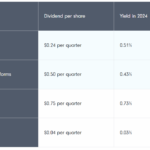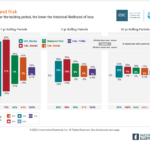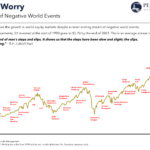This is a good question that a lot of people have wondered about. There are many reasons one SHOULD invest some part of their portfolio in foreign equities.
Some of the “experts” say that one must allocate 20% of their assets in foreign investments. I would say that they are wrong and that one must invest at least 40% of their assets in foreign stocks due to reasons discussed below.
The advantages of investing in foreign stocks:
1. Diversification:
The first and foremost rule for any investor is “Diversification”.By investing in overseas stocks you are basically diversifying your risk country wise. If one keeps all of their investments in one country like the US, they make a huge bet that the US markets would perform better. By putting your money to work in different countries’ markets you are reducing the risk of over-exposure to one particular country.
2.Returns:
When you invest in foreign stocks, you are able to capture the returns which may be better than the investment in the US. It is possible that the foreign investment might do worse than the US investment. But if the US markets do not return an above average return and foreign stocks do, then an investor would be better off putting some of their assets in those stocks as well.
3. Opportunities for finding negatively co-related investments:
Well for “non-financial” folks this may sound too geeky.But this means that one asset is negatively to co-related to another if they don’t fall or go up at the same time.
For eg – if the price of gold goes up while the price of houses fall, the house and the gold are negatively co-related assets. So to better spread one’s risk, one should invest in both the assets.
Investing in foreign stocks one can find opportunities to get negatively co-related assets in their portfolio. For eg – Usually foreign small cap stocks are negatively correlated to US stocks. This is because most the large US companies derive their revenue from foreign countries as well. But the small cap companies in those countries usually derive their revenues from local domestic markets. So when large caps stocks like GE, P&G; fall in the US, the small cap stocks in foreign countries may go up.So by putting some money in these foreign small caps an investor can capture the returns which are better than the US large caps.
Note: Investing in foreign small cap stocks is difficult and sometimes very risky. This is due to lack of information availability on the internet and it is also difficult to evaluate such small companies due to lack of knowledge about local markets. So an investor should leave this part of the game to the professional money managers. There are plenty of avenues to do this like mutual funds, ETFs etc.
4.Less Option mess:
Unlike US companies, foreign firms generally do not issue a ton of “free” options to their executives to cash in. This reduced expense adds more profit to the company coffers and ultimately the shareholders. One can easily go to Yahoo finance and see how much shareholder wealth is siphoned off in plain sight legally by US company executives. On top of this, many US companies lavishly pay their execs all kinds of other freebies even in retirement. It is not uncommon for a company to cut or reduce dividend to shareholders and pay a few hundred million $ to a lazy and greedy executive in the US. I am not saying that this is not present in all foreign companies. But in most countries people to seem to be less greedy and don’t demand more and more and more like the US ones.
The disadvantages of investing in foreign stocks:
1. Currency Risk:
When one invests in foreign stocks, they take two types of risks. One is the risk of the asset falling in value. The other is called the currency risk. This means that the currency of the country where one invested should not appreciate against the US $. Otherwise they will loose most of their returns to currency exchange rates.
For eg. – If one invests in Germany and lets say that the Euro continues to go up in value against the $ – maybe 2$ = 1 EUR. It is currently around 1.4 to a $. If that happens then the investor will loose a lot of his/her returns to exchange risk when he/she tries to convert their EUR profits into US $.
2. Information risk:
This risk is present since it is harder to get information on a foreign stock than it is for a US company. However many quality companies now have good websites in English where investors can get all the information they need.
3. Returns:
It is possible that the foreign investment will perform worse than the US investment. This is true especially about merging countries. Many emerging countries such as Brazil, Argentina, Thailand, Korea etc. have had difficult economic and financial problems a few years back and may fall into those situations again.
Some other risks that an investor is exposed to investing in foreign countries:
4. Sovereign risk
5. Monitoring costs
6. Transaction costs
7. Political risks
How can I can invest in foreign stocks without leaving the US?
There are many ways to invest in faraway companies without converting the $ to other currencies or going to other countries. Here are some options:
1. Direct company stocks via American Depository Receipts (ADR) Stocks
2. International Mutual Funds
3. ETFs
4. Closed-End funds



